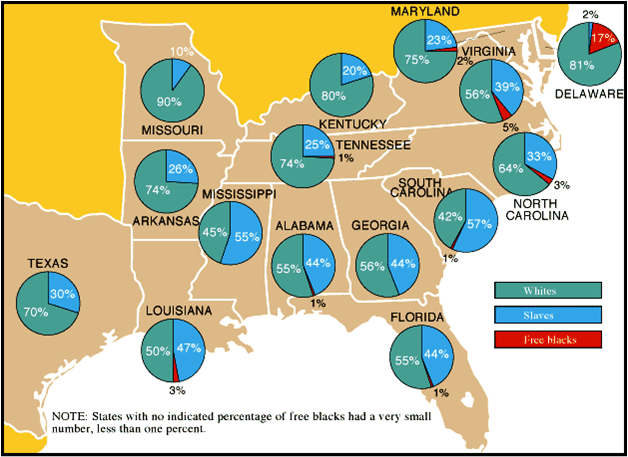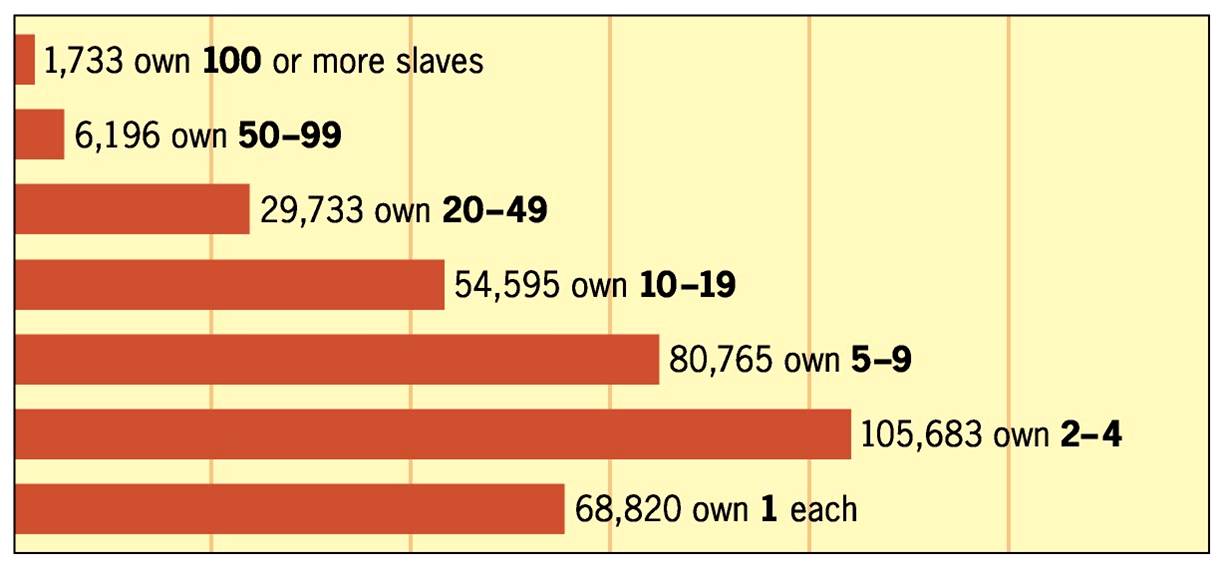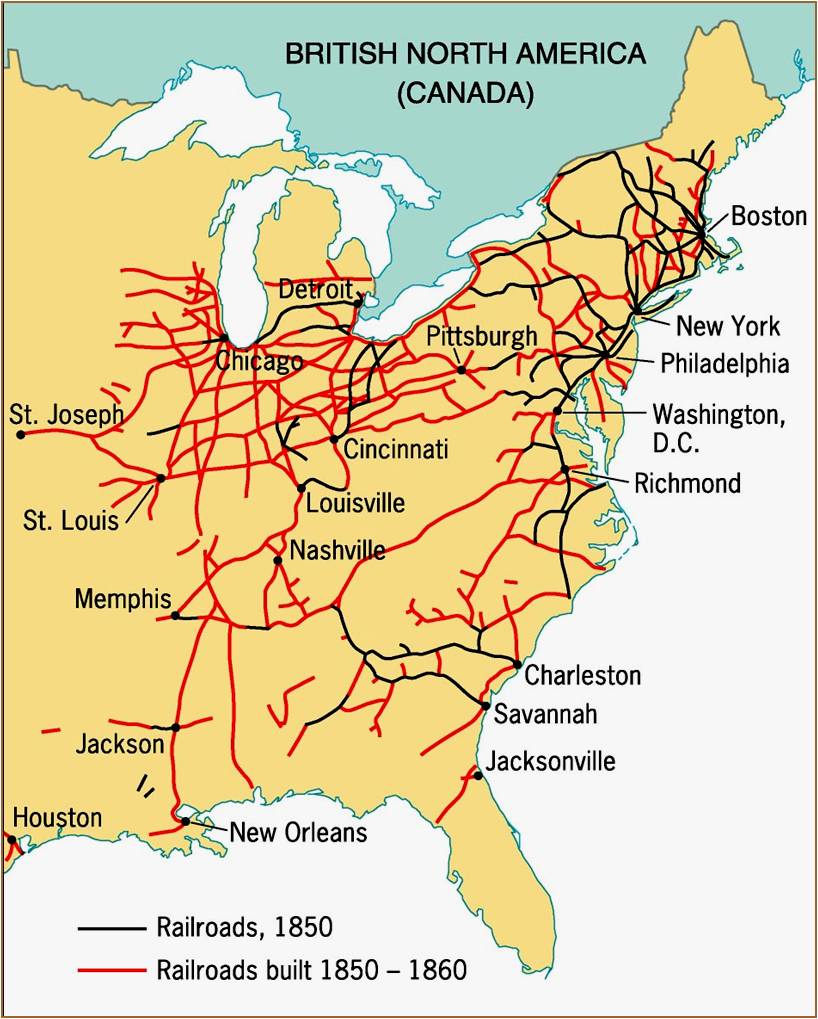"Cotton is King"
Sen. James Henry Hammond (D-SC)
March 4, 1858 On the Admission of Kansas, Under the Lecompton Constitution Speech Before the United States Senate
If we never acquire another foot of territory for the South, look at her. Eight hundred and fifty thousand square miles. As large as Great Britain, France, Austria, Prussia and Spain. Is not that territory enough to make an empire that shall rule the world? With the finest soil, the most delightful climate, whose staple productions none of those great countries can grow…Through the heart of our country runs the great Mississippi, the father of waters, into whose bosom are poured thirty-six thousand miles of tributary rivers; and beyond we have the desert prairie wastes to protect us in our rear.
…But, in this territory lies the great valley of the Mississippi…We own the most of it. The most valuable part of it belongs to us now; and although those who have settled above us are now opposed to us, another generation will tell a different tale. They are ours by all the laws of nature; slave-labor will go over every foot of this great valley where it will be found profitable to use it, and some of those who may not use it are soon to be united with us by such ties as will make us one and inseparable. The iron horse will soon be clattering over the sunny plains of the South to bear the products of its upper tributaries of the valley to our Atlantic ports, as it now does through the ice-bound North.
…On this fine territory [the South] … Upon our muster-rolls we have a million of men. In a defensive war, upon an emergency, every one of them would be available. At any time, the South can raise, equip, and maintain in the field, a larger army than any Power of the earth can send against her, and an army of soldiers--men brought up on horseback, with guns in their hands. If we take the North, even when the two large States of Kansas and Minnesota shall be admitted, her territory will be one hundred thousand square miles less than ours. I do not speak of California and Oregon; there is no antagonism between the South and those countries, and never will be. The population of the North is fifty per cent greater than ours. I have nothing to say in disparagement either of the soil of the North, or the people of the North, who are a brave and energetic race, full of intellect. But they produce no great staple that the South does not produce; while we produce two or three, and these the very greatest, that she can never produce. As to her men, I may be allowed to say, they have never proved themselves to be superior to those of the South, either in the field or in the Senate.
But the strength of a nation depends in a great measure upon its wealth, and the wealth of a nation, like that of a man, is to be estimated by its surplus production…It appears, by going to the reports of the Secretary of the Treasury, which are authentic, that last year the United States exported in round numbers $279,000,000 worth of domestic produce, excluding gold and foreign merchandise re-exported. Of this amount $158,000,000 worth is the clear produce of the South; articles that are not and cannot be made at the North. There are then $80,000,000 worth of exports of products of the forest, provisions and breadstuffs…In addition to this, we sent to the North $30,000,000 worth of cotton, which is not counted in the exports. We sent to her $7 or $8,000,000 worth of tobacco, which is not counted in the exports. We sent naval stores, lumber, rice, and many other minor articles. There is no doubt that we sent to the North $40,000,000 in addition; but suppose the amount to be $35,000,000, it will give us a surplus production of $220,000,000. But the recorded exports of the South now are greater than the whole exports of the United States in any year before 1856. They are greater than the whole average exports of the United States for the last twelve years, including the two extraordinary years of 1856 and 1857. They are nearly double the amount of the average exports of the twelve preceding years. If I am right in my calculations as to $220,000,000 of surplus produce, there is not a nation on the face of the earth, with any numerous population, that can compete with us in produce per capita.
... I know well enough that the North sends to the South a vast amount of the productions of her industry. I take it for granted that she, at least, pays us in that way for the thirty or forty million dollars worth of cotton and other articles we send her.
…It is commerce that breeds war. It is manufactures that require to be hawked about the world, and that give rise to navies and commerce. But we have nothing to do but to take off restrictions on foreign merchandise and open our ports, and the whole world will come to us to trade. They will be too glad to bring and carry us, and we never shall dream of a war. Why the South has never yet had a just cause of war except with the North. Every time she has drawn her sword it has been on the point of honor, and that point of honor has been mainly loyalty to her sister colonies and sister States, who have ever since plundered and calumniated her.
But if there were no other reason why we should never have war, would any sane nation make war on cotton? Without firing a gun, without drawing a sword, should they make war on us we could bring the whole world to our feet. The South is perfectly competent to go on, one, two, or three years without planting a seed of cotton. I believe that if she was to plant but half her cotton, for three years to come, it would be an immense advantage to her. I am not so sure but that after three years’ entire abstinence she would come out stronger than ever she was before, and better prepared to enter afresh upon her great career of enterprise. What would happen if no cotton was furnished for three years? I will not stop to depict what every one can imagine, but this is certain: England would topple headlong and carry the whole civilized world with her, save the South. No, you dare not make war on cotton. No power on earth dares to make war upon it. Cotton is king.
Declaration of the Immediate Causes Which Induce and Justify the Secession of South Carolina from the Federal Union
The people of the State of South Carolina, in Convention assembled, on the 26th day of April, A.D., 1852, declared that the frequent violations of the Constitution of the United States, by the Federal Government, and its encroachments upon the reserved rights of the States, fully justified this State in then withdrawing from the Federal Union; but in deference to the opinions and wishes of the other slaveholding States, she forbore at that time to exercise this right. Since that time, these encroachments have continued to increase, and further forbearance ceases to be a virtue.
In the year 1765, that portion of the British Empire embracing Great Britain, undertook to make laws for the government of that portion composed of the thirteen American Colonies. A struggle for the right of self-government ensued, which resulted, on the 4th of July, 1776, in a Declaration, by the Colonies, "that they are, and of right ought to be, FREE AND INDEPENDENT STATES; and that, as free and independent States, they have full power to levy war, conclude peace, contract alliances, establish commerce, and to do all other acts and things which independent States may of right do."
They further solemnly declared that whenever any "form of government becomes destructive of the ends for which it was established, it is the right of the people to alter or abolish it, and to institute a new government." Deeming the Government of Great Britain to have become destructive of these ends, they declared that the Colonies "are absolved from all allegiance to the British Crown, and that all political connection between them and the State of Great Britain is, and ought to be, totally dissolved."
In pursuance of this Declaration of Independence, each of the thirteen States proceeded to exercise its separate sovereignty; adopted for itself a Constitution, and appointed officers for the administration of government in all its departments-- Legislative, Executive and Judicial…
These ends it endeavored to accomplish by a Federal Government, in which each State was recognized as an equal, and had separate control over its own institutions. The right of property in slaves was recognized by giving to free persons distinct political rights, by giving them the right to represent, and burthening them with direct taxes for three-fifths of their slaves; by authorizing the importation of slaves for twenty years; and by stipulating for the rendition of fugitives from labor.
We affirm that these ends for which this Government was instituted have been defeated, and the Government itself has been made destructive of them by the action of the non-slaveholding States. Those States have assume the right of deciding upon the propriety of our domestic institutions; and have denied the rights of property established in fifteen of the States and recognized by the Constitution; they have denounced as sinful the institution of slavery; they have permitted open establishment among them of societies, whose avowed object is to disturb the peace and to eloign [to take far away] the property of the citizens of other States. They have encouraged and assisted thousands of our slaves to leave their homes; and those who remain, have been incited by emissaries, books and pictures to servile insurrection.
A slave state and a free state
The Frenchman Alexis de Tocqueville visited the United States and observed a free state and a slave state. He wrote about what he saw:
"On the north bank of the Ohio, everything is activity, industry; labor is honored; there are no slaves. Pass to the south bank and the scene changes so suddenly that you think yourself on the other side of the world; the enterprising spirit is gone."
Southern Antebellum Population 1860

Percentage of Slave Owning Families in 1850

Cotton Exports from 1800 - 1860

Growth of the Railroads from 1840 - 1860

Population Centers in the United States in 1860

Comments (0)
You don't have permission to comment on this page.